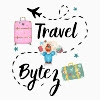Before leaving for every trip, there is always that question of how much to bring and the medium it should be in (e.g. cash, credit card, Debit/ATM card or traveler’s cheque).
Cash is one of the easiest mediums to bring along when traveling overseas, there are no additional charges using the cash you have exchanged. The only concern might be if you bring too much or have not enough.
Being a major Asian financial hub, Singapore has a fully developed banking and exchange system. Before traveling overseas (or if you are in Singapore), you can change your money any of the authorized moneychangers scattered throughout the island (usually in shopping malls). You can also change your money at banks, but hardly anyone does it when the exchange rates of the moneychangers are comparable to those of the banks (or even better) because moneychangers don't charge service fees.
In Singapore, moneychangers sell other currencies other than Singaporean dollars and are more accessible than banks. In addition, given that banks charge an additional transaction fee, it is more worthwhile to exchange money at the moneychangers.
Cash
 |
| By epSos.de via Flickr |
Being a major Asian financial hub, Singapore has a fully developed banking and exchange system. Before traveling overseas (or if you are in Singapore), you can change your money any of the authorized moneychangers scattered throughout the island (usually in shopping malls). You can also change your money at banks, but hardly anyone does it when the exchange rates of the moneychangers are comparable to those of the banks (or even better) because moneychangers don't charge service fees.
In Singapore, moneychangers sell other currencies other than Singaporean dollars and are more accessible than banks. In addition, given that banks charge an additional transaction fee, it is more worthwhile to exchange money at the moneychangers.
Credit Cards
 |
| By Images_of_Money via Flickr |
In the past, technology for credit card safeguards were not that advanced: there was no guarantee your credit card would work overseas, or when there was fraudulent charges to your card there was not much recourse. However, nowadays with banks in Europe and Asia introducing "chip-and-PIN" credit cards to reduce fraud, using your credit card overseas has become easier and safer; with the new safety measures in place (e.g. SMS/email alerts).
Credit Card Pros:
- Convenience
- Lower charges (inclusive of service fees) than travelers’ cheques
- Easy recourse to minimize losses or fraudulent charges by calling the hotline
Credit Card Cons:
- Not all establishments accept credit cards, smaller establishments like cafes or homestays do not accept credit cards. For those that do there might be an extra administrative fee.
- If you are not back (in your country) in time to pay your credit card bill. But with internet banking that should be easy to resolve.
Things to note about credit cards:
- If you intend to bring your credit card for your trip, don’t forget to inform your bank.
- Always have the credit card/bank hotline number on hand. It is useful should you need to contact the bank while overseas to report a lost credit card or fraudulent charges to be voided; minimizing losses.
- Try not to use your credit card to withdraw money from overseas ATM as the charges are quite high.
- There will always be a currency conversion charge by the bank each time you use your card overseas (about 1-3%). Despite the currency conversion charge, it is still lower than the charge for traveler’s cheques. A good summary of the different rates charged by different banks for the various cards can be seen here.
Debit and ATM Cards
Debit and ATM Cards Pros:
- ATMs are conveniently located all over the world makes it convenient and easier to access your cash.
Debit and ATM Cards Cons:
- As with credit cards, there are charges (to currency conversion fees, foreign ATM fees etc...)
- Although debit cards work the same way as credit cards, there is little protection or recovery for lost/stolen cards or fraudulent charges.
- Unlike credit cards where all or a certain percent of the money can be credited back, once the money is deducted from a debit or ATM account, there is little chance of it returning back to you. So it might be wise not to put too much money in the debit/ATM account.
Traveler’s Cheques
Traveler’s cheques are cheques with a pre-printed, fixed amount that is paid to issuer (e.g. bank). It enables you to make payment and was thought to be secure. However, with the introduction and popularity of alternatives such as credit/debit/ATM cards, the use and popularity of traveler’s cheques have been declining. Personally I don’t think travelers’ cheques are a popular choice (particularly amongst the younger more tech-savvy generation).The increased acceptance and convenience of the alternatives in this digital age are a much better option than traveler’s cheques, which are troublesome and cumbersome: you have to queue up, sign forms, and pay a commission when you cash, not much recourse should you lose the cheque etc… Moreover, many businesses in Europe and Asia no longer accept travelers’ cheques and the cheques cannot be cashed out that easily anymore; even at the banks that issue them.
So what is your choice when you travel?

0 comments :
Post a Comment